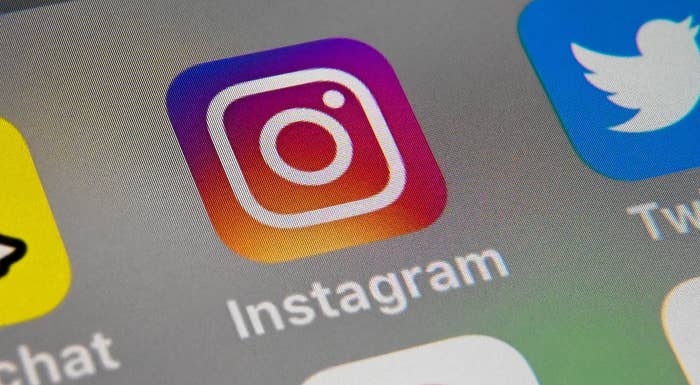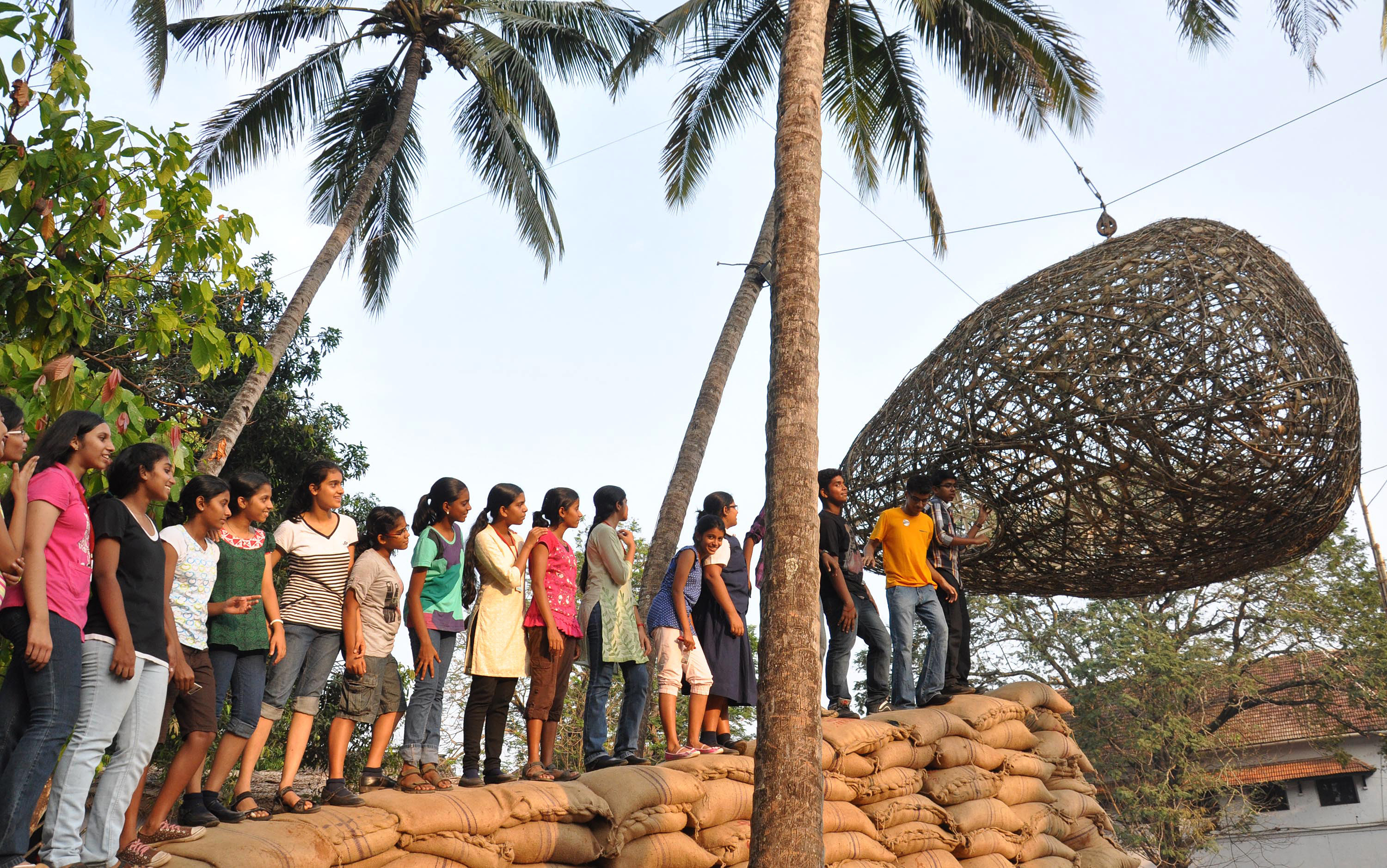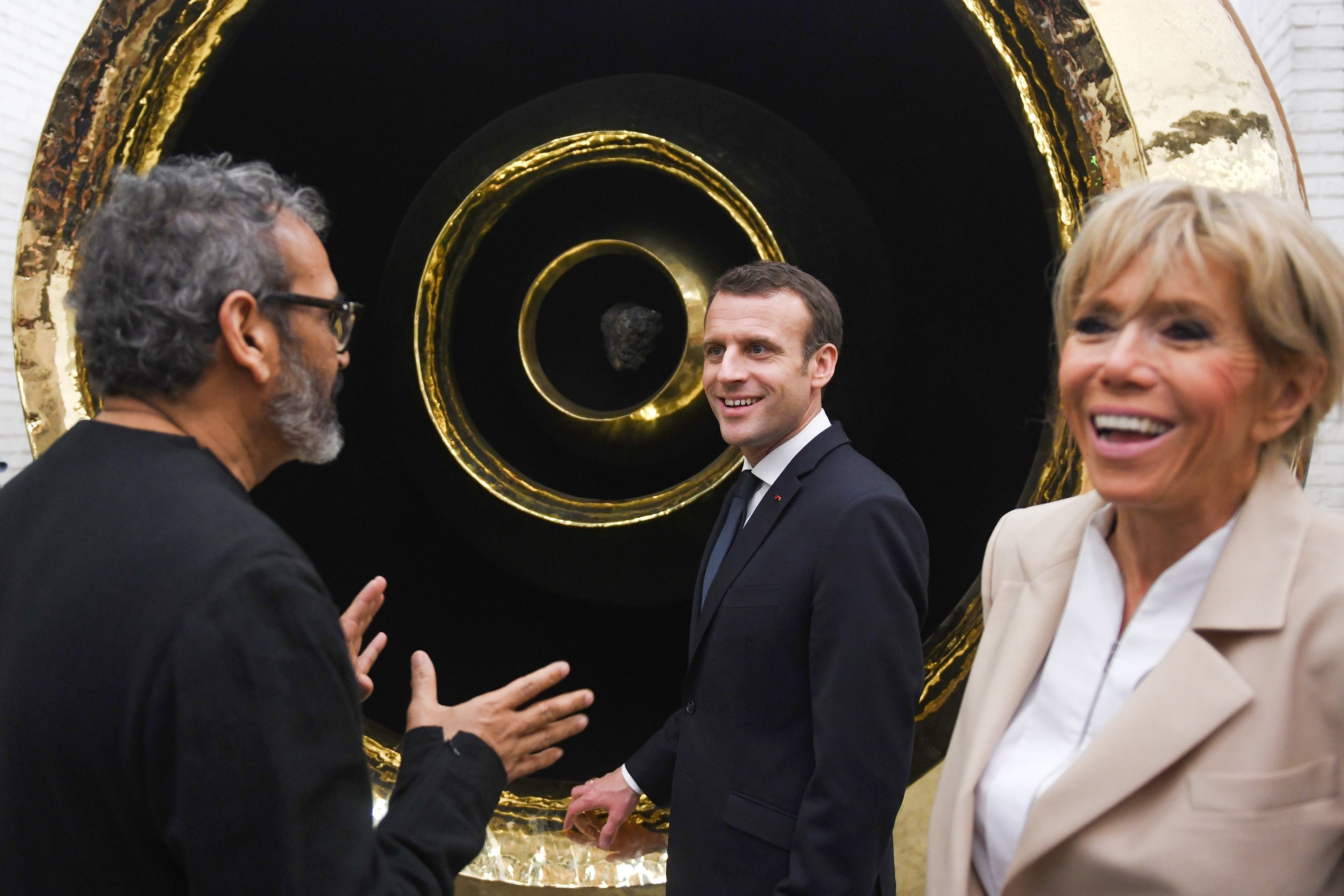
NEW DELHI — Instagram has refused to say whether it will comply with a court order to provide the identity of whoever is running an anonymous account sharing #MeToo stories of abuse in India’s art world.
The company told BuzzFeed News it could not comment on the order made in an Indian court as the case was still before judges, but said that it always cooperates with law enforcement.
If Instagram complies with the order, it could set a dangerous precedent for its policy on revealing the identities behind anonymous accounts.
At the center of the case is an Instagram account called Scene and Herd, or @herdsceneand, which has anonymously posted stories of alleged abuse in the India’s art world since last year.
Subodh Gupta, an award-winning artist and recipient of France’s highest honor for the arts, filed a defamation suit worth around $700,000 at the Delhi High Court after he was accused in a post on Scene and Herd last December of verbally and physically harassing his women assistants. Subodh Gupta has denied the allegations, saying that they have been made from behind a "veil of anonymity" and as a result his reputation has been destroyed. (Subodh Gupta's lawyers did not respond to a request for comment from BuzzFeed News.)
In a court hearing last month, a judge instructed Google and Facebook — Instagram’s owner — to remove links that mention Subodh Gupta’s name in connection with #MeToo allegations.
"Our teams are reviewing the court order and will take action in compliance with the local laws," a Google spokesperson told BuzzFeed News.
The judge also directed Instagram to provide the identity of the person running Scene and Herd, in a sealed envelope, by the date of the next hearing, Nov. 18.
Instagram declined to answer questions on this case. But BuzzFeed News has seen an email an Instagram executive sent in late September to the people behind an anonymous #MeToo-related Instagram account that asked to be left out of their legal trouble when they were sued.
This same executive had previously offered reassurances — via an email sent after fresh #MeToo allegations began to shake India’s film and media circles in October 2018 — to the same anonymous account that Instagram supported the #MeToo movement and had changed its policies on cyberbullying to accommodate accounts that named and shamed abusers.
Instagram declined to comment when asked about these emails and pointed BuzzFeed News to its community guidelines page.

Scene and Herd paints a picture of the art world similar to every industry in which young women must rely on older men for professional validation, where much of the “networking” occurs in informal settings without any mechanism to register formal complaints, and where a culture of cronyism enables a privileged few to both abuse their positions and create mediocre art.
On the day of the account’s first post, the person behind the handle revealed that they too were a survivor of sexual assault. In the beginning, the handle's posts were drafted to read like insider gossip or coded warnings that would serve only those familiar with the Indian art scene.
BuzzFeed News spoke with a young woman affiliated with Scene and Herd. She was not involved with running the account. The woman, who resides in India, spoke on the condition of anonymity for fear of damaging her career and exposing herself to legal action
She said the decision to start naming people on the account came in the run-up to the Kochi-Muziris Biennale, a major international art festival in Kerala, South India, in 2018.
“For a very long time, we were speaking among ourselves in a whisper network; people kept reaching out to us asking for help. We were warning each other; we were warning others not to work in certain places with certain people," the woman BuzzFeed News spoke to said. "But last year, there was a moment where one of us thought, this is enough. It can't go on like this. It can't be just this tightly knit Delhi circle that knows about the whisper network.”
“The situation in Kochi was very bad,” she said. “In the last three months before the opening, a lot of the young assistants working with the biennale kept reaching out to us and saying that they were in this hostile environment, passes were being made at them all the time, and they couldn’t refuse or say anything because they feared for their jobs.”
At the time, the woman said, Scene and Herd’s Instagram handle was receiving 10–20 DMs a day from women who said they had been assaulted, groped, harassed, stalked, and threatened. Some of the incidents were old, others pointed to an artist whose behavior had been an open secret in the art world and who had subsequently amassed alleged victims in double figures. (The artist in question, who has been accused by 11 women so far, denied the allegations and called them “vulgar and painful.”)
By the end of October 2018, Scene and Herd was making news: The handle had received and shared multiple complaints about one of the Kochi-Muziris Biennale’s main founders, who was forced to step down from his post. (An internal investigation against the founder was subsequently dropped as no women came forward to cooperate with the investigation.) Gallerists and curators were now following the account, monitoring every post. Screenshots from Scene and Herd began to appear on almost every other social media platform. Hollywood actor and one of the champions of the #MeToo movement Rose McGowan started following and occasionally commenting.

The allegations against Subodh Gupta were first shared on Instagram on Dec. 13, 2018, and received nearly four times the number of likes of any other posts on the Scene and Herd page.
Subodh Gupta, 55, is known for his large-scale installations, paintings, and videos that have been exhibited in galleries across the world, including Hauser & Wirth in New York and London’s Tate Modern. In his petition against Scene and Herd, Subodh Gupta mentions that he came from humble origins, before working his way up to receiving international acclaim.
The allegations on Scene and Herd against Subodh Gupta, which he has denied, said that he had made advances — physical and/or verbal — toward young women who worked as his assistants.
Days after the allegations were posted on Instagram, Subodh Gupta stepped down from his role at a prominent art festival in Goa, as well as the head of an art collective in New Delhi.
BuzzFeed News spoke to four women who have worked with Subodh Gupta and been associated with him socially. None of them wanted to share their stories on record, because they said they were afraid that Subodh Gupta would go after them, just as he was going after Scene and Herd. One woman, who said she had complained about his behavior to an employer, said she was warned against speaking publicly about the alleged incident by her mentor, “It’s sad, but the truth is this could destroy my career,” the woman said, adding that while Subodh Gupta’s behavior was an open secret — one that young female employees like her were warned about when they joined projects — she was not aware whether he was asked by gallerists or curators to step down from any public positions he held until he was called out by Scene and Herd.
In his petition to the court, Subodh Gupta says this period marked the beginning of a personal hell for him and his family: His works were no longer being sold, and he and his family were the subject of “snide” remarks at social gatherings.
But Subodh Gupta did not entirely lose his clout — one document of his court petition, seen by BuzzFeed News, includes an email from a prominent gallery whose curator, while asking Subodh Gupta to step down, tells him that fellow artists are “frothing at the mouth” about the way #MeToo is “being misused.” His stepping down is not an admission of guilt, the gallerist assures him, but just something he must do because the Ford Foundation and the Rockefeller Foundation (the gallery’s funders) have a “safe-space policy.”
“First time I ever heard of this kind of a policy,” she writes. “But clearly it’s a big deal in the US now.”
Another email from a former assistant included in Subodh Gupta’s petition before the court — part of a set of emails from Subodh Gupta’s assistants to him over the years — expresses the woman’s disappointment at how bitter their relationship became once the allegations against him surfaced, and she apologizes. BuzzFeed News reached out to the woman, who said she had no idea her emails had been used as part of Subodh Gupta’s petition.
“Any plaintiff is well within his rights to contest the claims made by a woman who alleges he sexually harassed her," Rebecca John, an Indian lawyer with more than three decades of experience, told BuzzFeed News.
“There are two worrying aspects here: One, can a court compel intermediaries like Instagram to disclose the names of the complaining women? And two, I contest the jurisprudence which requires a woman to file a complaint with the police or institute legal proceedings to prove her credibility.”
John told BuzzFeed News that the courts need to understand why women used the platform of #MeToo to make their painful disclosures. “It is because by and large the formal judicial apparatus has failed women,” she said. “The outpouring that was seen last year was also a plea for institutional course correction.”

Other lawyers say that Instagram would be well within its rights to refuse to comply since Instagram LLC, the company that the court's order is against, isn't located within the territorial jurisdiction of the Delhi High Court but is an American entity. "However, Instagram and Facebook's mere presence in India could tempt it to avoid trouble and simply comply," said Chitranshul Sinha, a lawyer in India’s Supreme Court.
Several artists declined to be interviewed for this piece, citing that they “needed to protect” themselves and did not want to add to Scene and Herd’s troubles in court. On Oct. 2, a group of artists, journalists, and filmmakers issued a statement condemning Subodh Gupta’s defamation suit and the silencing of survivors. “This defamation suit against @herdsceneand is an outright move to silence the survivors and gag the platform that gave them a voice while protecting their identities. This is exactly what survivors have feared when choosing anonymity. This is an attempt to dissuade others from sharing further experiences of harassment and violence, and to perpetuate a culture of fear,” the statement said. “The survivors who have shared their painful accounts with great courage MUST be protected. Intimidation and attempts to discredit and silence their voices MUST be strongly condemned.”
The woman associated with Scene and Herd who spoke to BuzzFeed News on condition of anonymity also said the reason women trusted Instagram and social media over the court of law was because several stories included details and nuances about abuse that survivors did not trust the police, lawyers, or judges to understand.
“There's this thing that when something happens to you, harassment, or it might even be assault — even after that people often reach out to their harassers to normalise the relationship,” she said. “This becomes very, very difficult to explain in a court case, survivors feel a lot of guilt attached to that. That's also the place for the account, to talk about these cases where you can't fight someone in a court case, but where there was still a clear abuse of power.”
The question of anonymous identities has been one that social media platforms have been grappling with for years. In 2014, a Virginia court ruled that Yelp would have to identify seven anonymous reviewers that a cleaning company said left defamatory reviews, and in 2017, a UK court ordered Twitter to disclose the identity of an anonymous user alleged to have made offensive statements about the complainant’s staff. Earlier this year, the Electronic Frontier Foundation fought for — and won — a redditor’s right to remain anonymous on the platform in a US court.
But lawyers who spoke to BuzzFeed News said that there has never been a case like this in India, one of Instagram owner Facebook’s largest markets in the world.
Online anonymity has allowed trolls to wreak havoc, but in sensitive situations like the #MeToo movement, anonymity has been the cause célèbre: When anonymous whisper networks that are turned into publicly available documents on the internet, like the list of "Shitty Media Men" and the list of sexual harassers in academia, their creators have either been described as radically feminist, or are threatened, accused of bullying and sued for defamation.
“Anonymity on the internet is a contested issue because people on the other side say it is detached from responsibility,” said Apar Gupta, director of the Internet Freedom Foundation (IFF), a New Delhi–based nonprofit that works on free expression, online privacy, and censorship issues on the Indian internet. “But in a society which is deeply unequal and has diverse groups that lack social power, the internet offers a chance for them to make statements, revelations, and act as whistleblowers. All this is undermined the moment someone’s real identity is revealed.”
In August 2017, India’s Supreme Court delivered a landmark judgment making privacy a fundamental right for all Indians. Privacy is now protected as “an intrinsic part of the right to life and personal liberty” under the Indian constitution. This right, however, can be taken away by due process of law. And the court’s order asking Instagram to reveal the identities of the people behind @herdsceneand would “technically qualify as due process,” said Sinha, the lawyer in the Indian Supreme Court.
Last year, Instagram found itself in a similar position after an anonymous account called Diet Madison Avenue run by 17 people published the names of alleged sexual harassers in New York’s ad industry. The account was sued by Ralph Watson, the former chief creative officer of the Colorado office of advertising agency Crispin Porter & Bogusky, who lost his job after being named by this account.
Watson won the right to subpoena records from Instagram and Facebook that would compel the companies to reveal the identities of the anonymous people running the account, but so far, the companies haven’t revealed them. In August, two of the defendants petitioned the US District Court in Manhattan to dismiss the defamation suit.
Michael Ayotte, a lawyer who represented Watson, did not respond to BuzzFeed News’ requests for comment.
In late December 2018, the people behind the Scene and Herd Instagram handle also reached out to the IFF, because they were worried about people trying to hack into the account. “They were getting threats,” Apar Gupta told BuzzFeed News. “There were insinuations that their personal computers and phones would also be targeted.”
Apar Gupta said that the IFF provided support services to Scene and Herd to secure the account, including setting up two-factor authentication, making sure that passwords were stored securely, and educating them about phishing links. At that time, however, Apar Gupta said that the people running the account did not consider that their identities might be revealed. “These things were not brought to our notice,” he said.
Apar Gupta told BuzzFeed News that the court’s order to reveal the identities of the people behind the account is a legal obligation for Instagram. To keep their identities anonymous, Instagram would have to “appeal or file an application,” he said. But Instagram hasn’t recorded an objection to the court’s order, he said.
On Aug. 30, Scene and Herd shared its first post in more than three months.
“We are still listening,” it said. “It might seem quiet but do not for a second think our work is done and that we’ve moved on. We continue to be threatened and intimidated in subtle and not so subtle ways. Not all work can be in the public eye and many in the Indian Art World are hoping everyone will forget, and many have, but rest assured we all still remember. We will never forget and we stand by all survivors.”●


